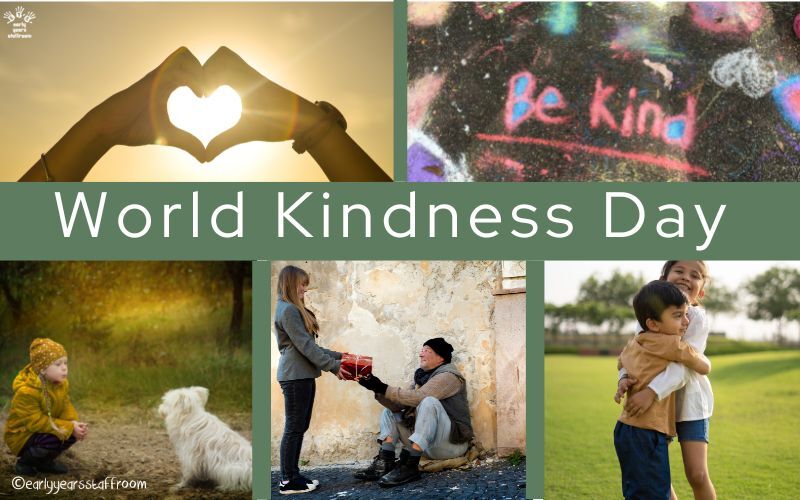

World Kindness Day is celebrated annually on November 13th and aims to promote kindness, empathy, and compassion among people of all ages. In an early years setting, educators can use this day as an opportunity to teach young children the importance of being kind to others, understanding their feelings, and fostering a positive environment.
Here are some ideas for incorporating World Kindness Day into an early years setting:
Art Projects: Have children create artwork that represents kindness, such as drawings of people helping each other, animals being kind to one another, or scenes that show acts of kindness.
Kindness Jar: Create a “kindness jar” where children can write or draw acts of kindness they have done or experienced. At the end of the day or week, read some of these acts aloud to the group to reinforce the importance of being kind.
Acts of Kindness: Encourage children to perform small acts of kindness throughout the day, such as helping a friend with a task, sharing toys or materials, or giving compliments. Acknowledge and celebrate these acts to reinforce the importance of kindness.
Circle Time Discussions: Talk about what it means to be kind, and encourage children to share their ideas and experiences related to kindness. Discuss ways they can show kindness to their friends, family.
Role Play: Set up scenarios that encourage children to practice kindness and empathy, such as helping a friend who’s feeling sad or sharing toys during playtime.
Kindness Tree: Create a “kindness tree” on a wall or board, where children can add paper leaves or hearts with written or drawn examples of kind acts they’ve experienced, witnessed, or performed.
By incorporating World Kindness Day themes and activities into your early years setting, you can help young children develop empathy, compassion, and a sense of responsibility towards others.